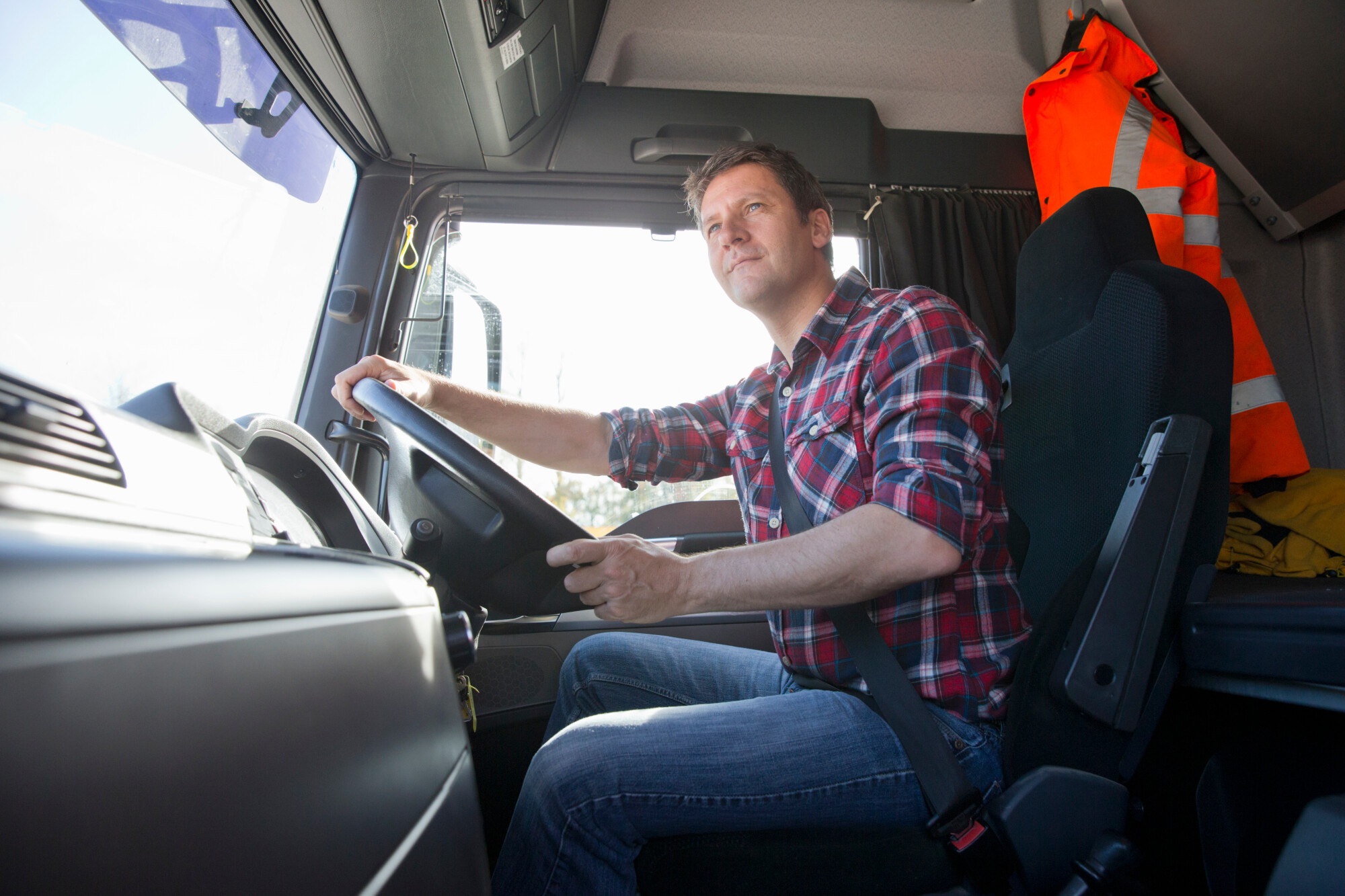In this comprehensive guide, we will explore the world of auto transport trailers. This involves assessing each available option and making an informed decision that prioritizes the security and well-being of your vehicle.
We’ll review what these auto transport trailers are best used for as well as their pros and cons.
1. Open Auto Trailer
An open auto trailer is a convenient option for shipping your car, especially if you own two or more cars. These types of trailers are designed with an exposed bed, making loading and unloading vehicles easy. They’re one of the most common auto trailers used by large car haulers. A common type of open auto trailer is the tilt trailer, also known as a hotshot trailer, named for its tilting mechanism which allows for easy loading and unloading.
Pros
- Quick Loading/Unloading: Tilt trailers facilitate easy loading and unloading.
- Versatility: Suitable for various vehicle types and sizes.
- Cost Effective: Less expensive than other auto transport trailers.
Cons
- Limited Protection: Vehicles are exposed to the elements during transit.
- Potential Damage: Higher risk of damage from road debris and adverse weather conditions.
2. Tow Dolly
A car dolly or tow dolly is a two-wheel trailer that will lift only the front wheels of your car. The rear wheels remain on the ground as you tow your car with a tow dolly. A tow dolly is suitable for most front-wheel-drive vehicles as well as a few all-wheel drive, rear-wheel-drive, and four-wheel drive vehicles.
However, there are certain weight restrictions so it wouldn’t be suitable for towing heavier vehicles. Also, in most cases, tow dollies don't work well for towing electric vehicles.
With a lower gas mileage and a higher risk of vehicle wear and tear, a tow dolly isn’t necessarily the best way to tow a car long distance. However, compared to auto transport, the tow dolly is a highly affordable option for vehicle towing within the same state or for short distances.
Pros
- Cost-Effective: Affordable for short-distance towing.
- Convenient Method: Efficient DIY auto transport carrier.
Cons
- Limited Vehicle Compatibility: Not suitable for all vehicles, especially those with all-wheel drive.
- Minimal Protection: Vehicles are exposed to varying external elements during transport.
- Increase in Mileage: It can contribute to the vehicle's mileage.
3. Flatbed
As the name suggests, a flatbed trailer has a flat, open, or enclosed bed. These trailers can transport anywhere from 1 to 4 cars at a time, depending on their size. One of the notable benefits of flatbed trailers is their ease of loading and unloading. The open design allows quick access, making it efficient for both the transportation company and the customers.
Pros
- Versatility: Suitable for various vehicle types, including non-running ones.
- Easy Loading: Vehicles can be driven onto the flatbed.
Cons
- Limited Protection: Similar to open trailers, flatbeds offer minimal protection.
- Exposure: Vehicles are prone to external elements like dirt, bumps, or weather.
4. Gooseneck
Gooseneck trailers typically feature an open truck bed and are commonly loaded from the back ramp. These trailers connect to a truck using a 'gooseneck hitch' and can transport between 1 to 4 cars.
Such carriers are the preferred trailer type for larger vehicles, such as cars and vans. Most specifically, if you have a camper van or an SUV to move from one place to another, this is the trailer you need to go for!
Pros
- Increased Stability: Offers better stability and weight distribution.
- Higher Load Capacity: Can carry heavier loads compared to bumper pull hitches.
Cons
- Higher Cost: Gooseneck setups can be more expensive.
- Complex Maneuvering: This may require a specialized towing setup.
5. Drop Deck
Drop deck trailers are used to move tall vehicles, like tractors, construction equipment, or machinery. What's cool about them is that the floor actually lowers down once it moves away from the front part of the truck. This makes putting heavy stuff on and taking it off super simple. It's like having a secret moving floor that makes loading and unloading heavy vehicles a breeze.
Pros
- Height Clearance: Suitable for taller cargo due to the lowered deck.
- Stability: Offers better stability during transport.
Cons
- Loading Complexity: Loading and unloading may require expertise.
- Cost: Drop deck trailers can be more expensive.
- Unavailability: Not as widely available as standard trailers, which may affect their accessibility.
6. Pintle Hitch
When we're talking about trailers that can handle really heavy loads, we'd definitely suggest the Pintle hitch. These trailers are super strong and built tough, making them perfect for carrying big and heavy things.
What makes them special is their pintle hook, which connects to a ring on the vehicle doing the towing. This connection gives the trailer extra stability, making sure everything stays safe and secure during transport.
Pros
- Enhanced Stability: Pintle hitch design increases heavy loads' stability.
- Heavy-Duty: Suitable for transporting larger and heavier vehicles.
Cons
- Specialized Setup: This may require a specific towing setup, limiting compatibility.
- Maneuvering Challenges: Maneuvering can be more complex compared to standard trailers.
7. Bumper Pull Hitch
Bumper pull hitch trailers are excellent for towing different things, like cars or smaller equipment. They connect to the towing vehicle using a hitch attached to the bumper. What's neat about them is their flexibility – you can use them for towing every kind of car.
Pros
- Wide Compatibility: Compatible with a range of towing vehicles.
- Cost-Effective: Generally more affordable than specialized hitches.
Cons
- Weight Limitations: Limited to lighter loads than gooseneck or pintle hitches.
- Stability: Has less stability compared to gooseneck setups.
8. Enclosed Trailer
Enclosed trailers provide a secure and protected environment for transporting vehicles or goods. With a fully enclosed structure, these trailers shield the car from external elements, ensuring added safety during transport. If you have a sports car or a vintage vehicle, an enclosed trailer is the safest transportation option.
Pros
- Enhanced Protection: Provides complete protection from weather, road debris, and theft.
- Versatility: Suitable for transporting various types of vehicles.
Cons
- Cost: Enclosed trailers are typically more expensive than open trailers.
- Loading Difficulty: Loading and unloading may take longer due to the enclosed.
9. Single-Level Open Multi-Car Trailer
Single-level open multi-car trailers can accommodate one to three vehicles, providing a cost-effective solution for transporting multiple cars simultaneously. These trailers are commonly used for short to medium-distance moves.
Pros
- Cost-Effective: Offers a more affordable option for transporting multiple vehicles.
- Versatility: Can accommodate one to three vehicles.
Cons
- Limited Protection: Vehicles are subject to the elements during transit.
- Space Efficiency: Loading multiple vehicles may require careful positioning.
10. Multi-Level Open Multi-Car Trailer:
Multi-level open multi-car trailers are designed to transport three or more vehicles with a stacked configuration. This type of trailer maximizes efficiency, making it a preferred choice for transporting multiple cars over longer distances.
Pros
- Efficiency: Maximizes the number of vehicles transported in one trip.
- Cost-Effective: Provides a cost-efficient solution for transporting multiple cars.
Cons
- Limited Protection: Vehicles don't get top-notch protection.
- Loading Complexity: Proper stacking and securing of vehicles require attention to detail as well as expertise.
What Things To Consider When Choosing the Best Auto Transport Trailer?
Choosing the best auto transport trailer is crucial to ensure your vehicle's safe and secure transportation. Here are key factors to consider when making this important choice:
- Distance and Terrain: If you're planning a long journey or going through tough places, picking trailers with extra stability and protection is a good idea. But if you're just going a short distance, regular trailers are okay.
- Cost and Budget: Check your budget before deciding. Open trailers are usually more budget-friendly. On the other hand, enclosed trailers provide top-notch protection but can be pricier.
- Regulations and Permits: Before hitting the road, make sure to look into the rules for transporting vehicles, both in your local area and internationally. Get any necessary permits to ensure you're good to go.
- Insurance Coverage: Double-check the transportation service or trailer rental insurance. It's super important in case something unexpected happens, and there's damage during the trip.
Secure Your Car a Safe Journey Today!
When choosing the perfect auto transport trailer, consider a few key things, like how far your journey is and how much security your vehicle needs. If you're traveling a long way or dealing with tricky terrain, go for a super stable and protective trailer. But if it's a shorter trip, you can save some bucks with a more budget-friendly choice.
At Nexus Auto Transport, we get how important it is to keep your vehicle safe during the journey. Our team is all about giving you reliable service that fits your needs. We've got different trailer options and solid insurance coverage to ensure your classic vehicle gets safe and sound where it needs to go.
Reach out to Nexus Auto Transport today to ensure your car's journey is in good hands so you can focus on your exciting new adventure!



